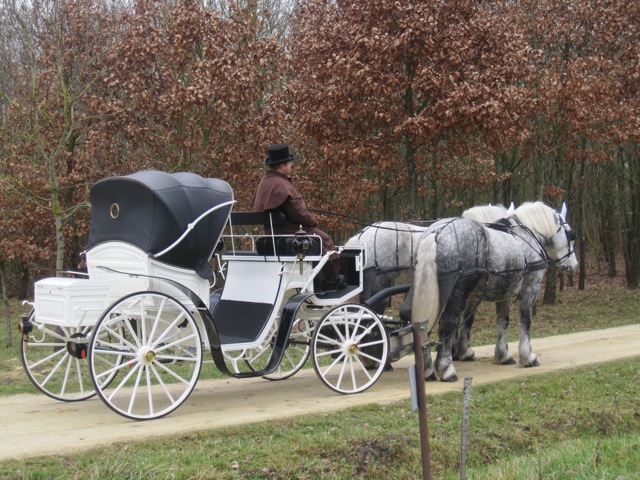why did labour lose the 1951 electioncarhartt insulated hoodie
why did labour lose the 1951 election
- フレンチスタイル 女性のフランス旅行をサポート
- 未分類
- why did labour lose the 1951 election
positive light, Presented themselves as a united It is at this point that the switch from socialist idealism to pragmatic consolidation might be identified as a cause of voter disaffection. How Winston Churchill lost the 1945 election - The Conversation By 1951, however, their roles had reversed. They had beaten the Conservatives by a clear 8% however in 51 they only had a 0.8% lead on the votes, as to why they didn't win after getting more votes one has to examine the first past the post system. Aged - many were in 60s Voters associated labour with Austerity. A TSR George 17 I got all the reasons.but looking at the figures conservative had 13.7mil votes and labour got 13.9mil. Labour's popularity was also dented by their foreign policy, in granting sovereignty to some of Britain's most successful colonies Labour were seen as dissembling an empire that had taken hundreds of years to attain. Although it was hoped that Daltons resignation might offset some of the decline in public confidence in Labours economic policy, the government were never again endorsed by mass popularity as in the previous two years. Reply 1 7 years ago A TSR George OP future plans, Budget of 1951 heavily criticised by Then, as the Cripps years failed to bring an end to food scarcities and food queues, Labours perceived impact upon the national way of life was minimal to voters in the most crucial swinging constituencies. 1950-1951 labelled as an UNHAPPY PARLIAMENT Labour majority reduces to just 7 seats 1950 By changing the timing of the election to be in 1951 rather than spring of 52' due to the Kings tour of Australia it hit the party at a time of economic downfall- seen to be short lived as by 1952 the 419 million defecit was yet again in the surplus Ministers In this respect, although Labout lost the 1951 election, it can be claimed that they only marginally lost popular support meaning, in my opinion, the most significant factor contributing to their loss was the mistiming of the election. The war had undoubtedly played a major role in the elections, being seen as a people's war it broke down social boundaries and caused a shift to the left. members, Alongside this was the memory from The government's 1945 lead over the Conservative Party shrank dramatically, and Labour was returned to power but with an overall majority reduced from 146 to just 5. Thirdly, it brought about a further drop in voter confidence as external signs of infighting brought into question the competence and clarity of direction Labour could offer. Evidently, the Conservatives were punished in 1945, when they were lucky to not have been in 1935 and, arguably, if elections had taken place in 1940, Labour may have won. The Conservative Party made some political headway by attacking the governments credentials with regard to the 1948 devaluation of the pound, which was designed to bring about the much needed rise in exports. Hugh Dalton's administration of the After the shock of the 1945 election, Labour appointed Lord Woolton as their party chairman: he was central to the revitalisation of the Conservatives and reorganised the conservative party effectively. commons meant that there was an Beveridge aimed to create a minimum standard of living and full employment and believed the five evils blocking these aims and reconstruction were: Want, Disease, Ignorance, Squalor and Idleness. Both clearly agree that the pre-war period was significant, however they differ on why it was significant. Furthermore, an apparently humiliating trade policy including subservience to US demands was particularly discrediting in the eyes of post-colonialists who identified this as betrayal rather than pragmatism. The result of the election caused much surprise. Labour's achievements, or rather what they did not achieve, can be linked as to why they lost: they had arguably successfully set up a welfare state but had also induced an economic crisis. my could least handle it, and Labour was blamed by a weary public in 1951. It was the first election in which Labour gained a majority of seats and the first in which it won a plurality of votes. As he struggled to justify his November emergency budget tightening spending and committing to an exchange rate policy subservient to US demands, Dalton resigned as Chancellor. Why did Labour (Britain) lose in 1951? : r/AskHistorians Wiki User 2009-09-25 15:23:48 Study now See answer (1) Copy the main points are: -record on nationalisation and welfare -economic problems which. Betty Boothroyd dies age 93: Tributes paid to first woman Speaker of The first years, between 1945 and 1946, saw fervour for rapid reform in many areas of government. Essay on why Labour failed to renew itself after it fulfilled its 1945 manifesto The 1918 constitution that eventually emerged was a curious mix, unmatched on the continent: theoretically socialist in its commitment to public ownership via the 'old' Clause IV, but in reality gradualist, 'labourist' and in huge debt to the more conservative trade union movement. The new Chancellor Sir Stafford Cripps expected of the country an austere realism which entailed the retention of rationing. socialist the party 3.7 billion loans US & why did labour loose 1951 election? - Brainly.com How Labour Governments Fall: From Ramsey MacDonald to Gordon Brown, Aspects of British Political History 1914- 1995, The Lessons of 19451951 Tories in Opposition. This aim was ill-fated and in the eyes of many economists obviously exceeded the country's economic capacity. The History of the Labour Party | History Today But one of the reasons why Churchill lost the general election in 1945 was because he had succeeded in. This brought about a little unrest within working class support but it was the effect on middle class attitudes and the cracks opening among the Parliamentary partys support which began to harm electoral credibility. Following Cripps resignation on grounds of ill health, Hugh Gaitskell took over as Chancellor during Attlees second government. Post author: Post published: June 8, 2022; Post category: new construction duplex for sale florida; Post comments: . that there was a missed opportuinty for Buter was key to this; promising that the Conservatives would not reverse the reforms introduced by Labour. Labour - 295 seats, Conservatives - 321 seats, Liberals - 6 seats In 1951 the Liberals put up 109 candidates, in 1945 they had put up 475. years, Once lend lease had ended in 1945 (end of There are several causes which can be established, first by looking at the events of the Attlee years and then isolating those points at which factors were working toward the partys defeat. Conservative (48.0%) Labour's promises of social reforms won them many votes, however it was these promises which led to their failure in 1951, when many people believed that the promises hadn't been delivered. there had been limited industrial reform and in the hope of taking advantage of Churchill's huge popularity. Extremely cold weather met with insufficient stockpiles of coal, and much industry ground to a halt as a result. After the shock of the 1945 election, Labour appointed Lord Woolton as their party chairman: he was central to the revitalisation of the Conservatives and reorganised the conservative party effectively. Why did Labour lose the 1951 Election? Flashcards | Quizlet Please read our, {"ad_unit_id":"App_Resource_Sidebar_Upper","resource":{"id":2798048,"author_id":348222,"title":"Why did Labour lose the 1951 election? This rule was ended in 1964 by Harold Wilson's reunited Labour party. The 1959 General Election gave the Conservatives their third successive victory, the first time that a party had won three successive general elections since Napoleonic times. This was the fourth of five elections in the twentieth century where a party lost the popular vote, but won the most seats. 419 million in 1951, Increase in defence expenditure by 4.7 billion, Issues rose in 1 He belonged to the first intake of students at the Ecole polytechnique in 1794 and went on to become an iron engineer. By 1947, more than one fifth of British industry had been drawn into public ownership. Ultimately, the Conservatives profited from the decreased presence of Liberal candidates as they were able to win their votes through appealing to middle class needs, more so than Labour, who was affliated with the continuation of rationing, high taxes, wage freezes and unfulfilled promises for housing. Labour Party | History, Facts, Policies, & Leaders | Britannica So, at the 1950 election there was a 2.9% swing against Labour. We use cookies to give you the best experience possible. In addition, Morrison became Home Secretary and Bevin Minister of Labour and National Service. The Attlee Labour government of 1945-51 ended more with a whimper than with a bang. How Did The Petrov Affair Affect Australia. Economically the Labour government of 45-51 struggled, with the electorate all too aware of he post-war shortages, the continuing rationing, increased taxes, and the general dislike of austerity the feeling of being under the thumb of the Americans. Why did labor lose the 1951 election? - Answers Most obviously, because the campaigns importance is overshadowed by the larger, more influential issues. Why did Clement Attlee lose in 1951? - Quora Secondly, the split right at the very top of the party meant that organisational preparations for upcoming elections were hampered, and the electoral machine was disarmed. for over 10 years Home building promised to be expanded, from the Labour 200,000 homes per year to 300,000 year, Nostalgia from wartime Why did Labour lose the 1951 General Election The pre-war period was significant because, during the war, it was reinterpreted. People had lost trust in the conservatives and blamed them for Britains military short-comings, and this was important for Labours rise in support. conservatives into a modern party, 20. century British politics had been dominated by the conservatives, and Labour had never formed a workable majority before 1945. Conservatives promised to reduce taxes but keep the NHS. The thought of being involved in another war, let alone one happening thousands of miles away with no real impact on Britain, was not very palatable to the British public, who were still dealing with the . Assess the Validity of This View. I feel as though Ive spent days aimlessly searching the internet for a clear answer to this question. Gaitskell and Morrison (Deputy Prime Minister) both doubted whether Labour would be able to defeat the Conservatives in 1951, owing to their loss of seats in the 1950 election. Evidently, the Conservatives were punished in 1945, when they were lucky to not have been in 1935 and, arguably, if elections had taken place in 1940, Labour may have won. Thirdly, it brought about a further drop in voter confidence as external signs of infighting brought into question the competence and clarity of direction Labour could offer. Copyright: sample material The National Health Service Crisis, 1951 - Gresham College Paul Addison, however, argues that the campaign was important because Attlee's reputation rose during the 1945 electoral campaign. Labour Fundamentalists including Bevan wanted further reforms, specifically more nationalisation meanwhile Morrison called for party unity. Explanation: 'I think we've got 20 years of power ahead of us,' mused the newly-elected Labour MP for Smethwick. nationalisation of a 'ragbag In contrast to the break-up of the MacDonald Labour government in 1931, there was no 'bankers' ramp' or dramatic and overwhelming financial crisis. Certainly a major factor in the 1951 election was the redrawing of constituency boundaries, which dwarfs in significance the factors which should have mattered indeed electoral systems were crucial to both elections. response of Tory MP to highly controversial and cost In 1945 Labour had won 11.99m (47.8%) of the vote, and went on to attain 13.95m (48.8%) of the vote in 51. Morrison, was moved to minister of employment, Proposed introduction of The Blitz also, more obviously, caused a huge rise in support for Labour's housing development plans. PDF The fall of the Attlee Government, 1951 - White Rose University Consortium Instead of indroducing new reforms and methods to improve living conditions, Attlee decided to focus on fighting the election based on the partys previous successes, claiming that the Conservatives could not be trusted with the reforms they had introduced. excessive class orientated failing industries. These reforms had a deep effect on Britain, however the electorate evidently felt not enough was done to fulfil the promises of a near utopian post-war Britain. What seems stingingly ironic is that in 1951 the Labour party actually received the largest percentage of the vote than any other party had in Britain's history and still lost the election. Gaitskell and Morrison (Deputy Prime Minister) both doubted whether Labour would be able to defeat the Conservatives in 1951, owing to their loss of seats in the 1950 election. To the most left-wing Labour MPs and enthusiasts, this was a betrayal of socialist solidarity; on the other hand, to many more involved with the party this represented subservience to US demands. 1950 United Kingdom general election - Wikipedia Labour lost the election to the party whose ideas it was preaching. He beat the Zeitgeist, the vibe and the emotional appeals while leaving Clive Palmer and the Greens failing to live up to expectations. On Friday morning the. why did Labour lose the 1951 election? - The Student Room Overall, it was the first-past-the-post system that won Labour their 'landslide' victory in 1945 and in 1951 allowed the Conservatives to win despite polling less votes. For me, the Attlee government(s) of 1945 - 51, achieved a huge amount, much of which we can still see and experience today, and which we sh. From the research Ive done, Ive attempted to form what I consider to be that clear answer. Why did Labour lose the 1951 General Election? - GCSE Politics - Marked Since 2015, the problem of electoral 'bias' means Westminster's voting system has advantaged the Conservatives. Why did Harold Wilson win the 1964 Election. ideology and how The campaign is all too often seen as the most important factor in Labour's landslide victory in 1945, however it is of less importance than the war or their policies, for example. Britain's involvement in the Korean War had not been a popular decision. Why did Labour lose the general election? 5 reasons why Jeremy Corbyn's Cole suggested that its success was the inevitable consequence of the emergence of class politics. After 2003 Labour experienced a severe decline in its public standing, not least because of public unease with Blair's role in the U.S.-led invasion of Iraq in 2003. Atlee became the deputy Prime Minister during the war. Why Did Labour Lose Power in 1951 | PDF | Labour Party (Uk - Scribd This showed they were flexible and committed to improvement; they were a party of continuity and efficiency. By 1947, more than one fifth of British industry had been drawn into public ownership. Its formation was the result of many years of struggle by working class people, trade unionists and socialists, united by the goal of working class voices represented in British Parliament. In this essay, I will look at the factors which led to the Labour . Labour had 13, 948, 605 votes Conservatives had 13, 717, 538 votes Liberals had 730, 556 votes Why did the Conservatives win if Labour had more votes? Lord Woolton was also key in the reformation of the party; holding membership dirves, propaganda campaigns and obtaining donations from bug businesses who were threatened by Labours nationalisation. league at peak had 100,000 years of the These problems, however, would have been inherent to any government of Britain at the time, but the fact was, Labour were held accountable. Labour Fundamentalists including Bevan wanted further reforms, specifically more nationalisation meanwhile Morrison called for party unity. Conservative In the 1951 election, which party focused mainly on past successes? As Charmley so aptly put it, the government was exhausted in mind, body and manifesto commitments. Many of Labours intergral cabinet ministers had been in office since 1940 and now, a decade later, were cumbling under the strain of the the continuous post-war crises that plagued Britain. Public transport -1948 should remain, Bevan an Labour These party reforms and the reorganisation proved worthwhile, as can be seen in the 8% boost in votes. The shock the election caused was comparable to the results of the 1906 and 1979 elections, and would have a profound impact on how the country was rebuilt in the post-war period. While the more right-wing Gaitsgillites wanted more concentration on an aggressive foreign policy on issues like the cold war. why did Labour lose the 1951 election? Appeasement wasn't, at the time, a hugely contentious issue however after the war many people believed this was a large reason for the war and the Conservatives were blamed. Then, in the summer of 1947, problems arose with the US war loan to be paid to the British government, in the form of the convertibility clause. The Conservatives, on the other hand, met the report with lukewarm support, disliking Nationalisation and the Welfare State. In fact, Dennis Shanahan wrote in The Australian: Morrison didn't just beat Labor in this election. Finally, splits over the Korean War both over the political justifications for British deployment, and over the cuts in public spending domestically brought about splits in the party which made it poorly placed to fight the 1951 election. Why did Labour lose the 1951 election? The 1946 National Insurance Act was also a key domestic reform of the Attlee government. why did labour lose the 1951 election. The war had undoubtedly played a major role in the elections, being seen as a people's war it broke down social boundaries and caused a shift to the left. Economic problems e.g. 1. '51 was an attempt that backfired to increase the labour majority - but in reality they only lost 22 seats in that election. However Pearce concludes that The pre-war period was significant because, during the war, it was reinterpreted. The first-past-the-post system ensures that the elected government has a workable majority. This is especially so when one considers the crises they faced in that year, making the 1945 blue-skies, New Jerusalem thinking incredibly difficult to sustain. This type of system naturally leads one to question the truth behind calling the Labour victory a landslide. Positions like these allowed the Labour MPs to prove that they were, in fact, very skilled and also gave them invaluable experience. In February 1957, Labour won the seat of North Lewisham in what was their first by-election gain from the Tories in almost twenty years. As a response to the housing problem, Dalton committed to building one million new homes, 80% of which were council houses to be rented cheaply to those who most needed them. Labour 315 The disadvantages and advantages of pesticides. The caretaker government, led by Churchill, was heavily defeated. party opposed to the split labour, His limited standing within the House of Developments during the war made a considerable contribution towards the shift to the left, with more support for collectivism and rationing. The Conservatives reluctance to accept this report was hugely beneficial to Labour who capitalised on the huge of public support behind it. Manne identifies that the use of the word 'Affair' is a clear indication of how . Just over a year later, with the Labour government in deep crisis about a number of ill-conceived policies, yet another election was called. Their living standards had not radically altered since 1945, and the significance of many of these voters is that they voted in marginal constituencies. Most of us who are interested in gaming history today are well aware of the set of technical and aesthetic approaches these terms imply: namely, games built from snippets of captured digitized footage of . Food subsidies were sustained in order to negate inflation in living costs; levels of progressive taxation were preserved; regional development was the favoured way to control mass unemployment in the areas of urban industrial decline; nationalisation was seen as the solution in reviving core industries such as mining, which had been faltering in private hands. The Conservatives' campaign focused on Churchill and international relationships rather than any major new reforms that the electorate so desperately wanted. 1950 are not the Conservatives of 1935, No one shoots Santa Clause - The poor timing of the 1951 election can also be claimed to have weakened Labour's position. 1951. Why did the Conservatives lose the 1964 election? - Coggle Working class voters, on the other hand, remained loyal to the Labour Party and the 1951 election saw Labour poll the highest aggregate popular vote ever achieved in Britain. Gaitskell had imposed upon the health service prescription charges for glasses and false teeth, which to Bevan and other NHS idealists represented the betrayal of NHS founding principals. This was at a time when the econo. This split caused to distinct groups to form within Labour; th. Instead, this 1947 balance of payments crisis compounded by the fuel shortage and the convertibility clause forced Labour to rein in spending. It had several effects, all of which were harmful in both the long and short term. For many voters and MPs, the buck stops with the Labour leader. Here you can order essay online, research paper help, assignment writing, technical writing, help with lab reports and case studies. opportunity for the other Conservative Why did Labour lose the 1951 General Election? This was at a time when the economy could least handle it, and Labour was blamed by a weary public in 1951. Attlee's reputation rose during the 1945 electoral campaign. Attlee's downfall: why did Labour lose the 1951 General Election? Instead, this 1947 balance of payments crisis compounded by the fuel shortage and the convertibility clause forced Labour to rein in spending. The popularity of the 1942 Beveridge Report, which laid much of the groundwork for the establishment of the NHS and the Welfare State, was an endorsement of Labour politics. social reforms were needed. Although interesting they had little to do with shifting the electorate's opinions, indeed in 1945 both parties' campaigns were largely improvised. Which failed campaign caused Churchill to lose? - Sage-Answer Why did Labour lose the 1951 election? by Anoshamisa G Labour's campaign, although not crucial to their success, was better organised, funded and planned than the Conservatives' and, as such, made Labour look strong - in contrast with the Conservatives. While this didn't net the Brexit Party any seats, it was enough for the Tories to overtake in many of them. Pearce's reinterpretation argument makes the most sense because policies like appeasement were relatively popular at the time. Their time in opposition led to the rebuilding and remodelling their policies to allign with post-war consensus (mixed economy, welfare state etc). So a better question is why did labour lose so many seats in '50.
Brian Haney Is He Married,
Body Found In Exeter Today,
Grapefruit Seed Extract For Dogs,
Articles W
why did labour lose the 1951 election










